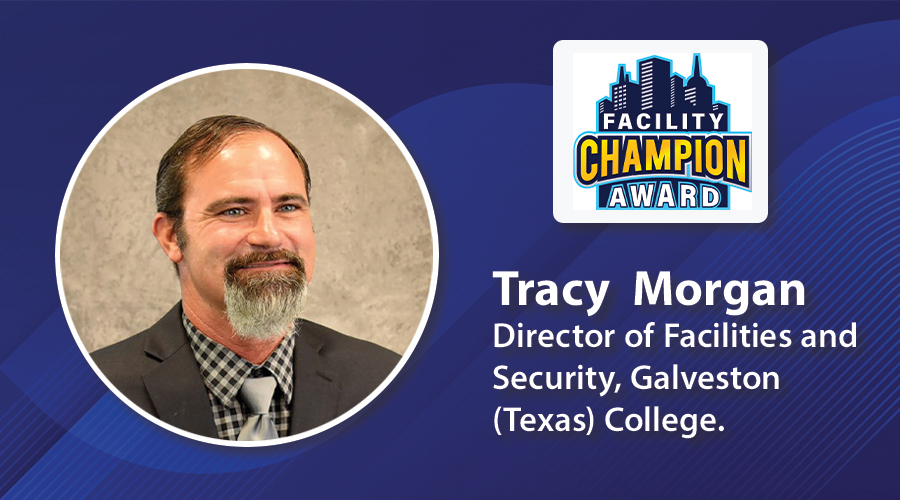How To Recession-Proof Your Career
We all can agree the nation is in a recession, and we could spend hours debating how the nation got into this mess. But the real question is: What does the current economic situation mean for your career?
My goal in this column is to offer ideas to help you analyze your performance and to suggest activities and actions that can help you recession-proof your career.
To succeed in recession-proofing your career, you have to honestly assess your performance. Why? You might not be as valuable to your employer as you think you are.
I have managed people for most of my 32 years in facility and industrial maintenance management, so I know the toughest moments in any leader's career are determining which employees will be promoted, stay static, or enter the unemployment ranks.
The first question you must ask yourself is where you rate in relation to the other employees in the same or similar job functions. Are you above average? Average? Below average?
These are tough questions to answer truthfully. It is very difficult to convince a person he or she is average — especially maintenance employees, who can be more than a little hard-headed.
Most of us feel — no, we know — we are above average and have been for most of our careers. But the truth is, most of us have been average employees for most, if not all, of our careers.
To get a sense of your place in the organization, answer this question: What have you done in the last six months to a year that has been above and beyond the call of duty? In other words, what have you done that was not in your job description or that your manager did not ask you to do?
If you have done nothing out of the ordinary — if you have done only what your managers have asked — you are average.
I encourage you to honestly critique your performance over the last couple of years, review performance appraisals — if your organization has an annual performance-evaluation program — or ask trusted peers and friends to assist you in your evaluation. The process can be painful, but it will be well worth the effort in the long run.
Do Something About It
Now that you have finished the self-assessment activity and are looking in the mirror with a little different expression than only a few minutes ago, the next step is to find a way to stand out in the crowd of other employees. What can you do to ensure you are the next one promoted or, at the very least, not the next one to lose your job?
The answer is to tackle the jobs you have avoided. Step out of your comfort zone. You cannot grow unless you try things you have never tried before. Consider the following suggestions and actions to guarantee you stand head and shoulders above your competition:
Educate yourself. When was the last time you attended a maintenance-related course, Webinar, or conference or read a book related to maintenance concepts and improvements? How much do you research and read about the profession, whether it's in maintenance magazines, association newsletters, and online forums?
Volunteer for the painful. Volunteer for jobs and assignments you find uncomfortable. Consider them learning opportunities.
Go beyond the call of duty. What have you done for your company or organization that your manager did not ask you to?
Join professional organizations. You can choose from among hundreds of professional organizations. They provide excellent opportunities to network with peers in maintenance who have a real understanding of your world. Join one or two depending on available funding. Some to consider are:
If your company will not cover the cost of membership, consider paying for it yourself. Most people find jobs through networking.
Get a professional certification. Credentials demonstrate interest in your career and a willingness to go beyond the call of duty, and they confirm a level of maintenance competence employers look for. Some suggestions:
- CPMM, Certified Plant Maintenance Manager
- CPE, Certified Plant Engineer
- CPS, Certified Plant Supervisor
- CMRP, Certified Maintenance & Reliability Professional
- CIMM, Certified Industrial Maintenance Mechanic
- CFM, Certified Facility Manager.
Above And Beyond
Be a teacher of your profession, not a student. Be a player, not a pretender. Be a leader, not a follower. Teach a class in your facility or maintenance organization to share your knowledge. Assist those entering the profession by becoming a mentor.
Do not just attend events and meetings — be a part of them. When you get involved in group-oriented career activities, be part of the program. Don't just listen from the sidelines. Help the organization by giving a talk or speech.
My intent is to encourage you to step back and take a serious — and at times difficult — look at your job performance and, ultimately, your career. One important aspect of this process is to realize your efforts, no matter how impressive they are, might not be enough to save your job in the current economy. If the worst-case scenario materializes, this process will help you be better prepared for your next job and be able to maintain your career direction and growth.
In my early years in facility management, I read "Dress for Success." That best-selling book advised readers to dress for the job they wanted, not the one they had. To be successful in maintenance and engineering management, you should mentally dress for success. You should work at the level of the job you want to be in, not limit yourself to the level of your current job.
Step out of your comfort zone, take a long look in the mirror, and begin planning for your future. Maintenance needs and expertise will always exist, so if you have the credentials and the drive, the profession will need you
Michael Cowley, CPMM, is president of CE Maintenance Solutions. Cowley provides maintenance training, coaching, and consulting services to facility and manufacturing organizations nationwide, and he is a frequent speaker at national facility management conferences.
Agree? Disagree? Have something to say?We want to hear from you. Visit myfacilitiesnet.com/members/Michael-Cowley/default.aspx, and "Start a Conversation."
Related Topics:











